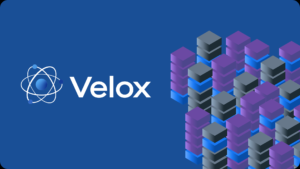

Momentum is building around Velox, a new C++ acceleration library that can deliver a 2x to 8x speedup for computational engines like Presto, Spark, and PyTorch, and likely others in the future. The open source technology was originally developed by Meta, which today submitted a paper on Velox to the International Conference on Very Large Data Bases (VLDB) taking place in Australia.
Meta developed Velox to standardize the computational engines that underly some of its data management systems. Instead of developing new engines for each new transaction processing, OLAP, stream processing, or machine learning endeavor–which require extensive resources to maintain, evolve, and optimize–Velox can cut through that complexity by providing a single system, which simplifies maintenance and provides a more consistent experience to data uses, Meta says.
“Velox provides reusable, extensible, high-performance, and dialect-agnostic data processing components for building execution engines, and enhancing data management systems,” Facebook engineer Pedro Pedreira, the principal behind Velox, wrote in the introduction for the Velox paper submitted today at the VLDB conference. “The library heavily relies on vectorization and adaptivity, and is designed from the ground up to support efficient computation over complex data types due to their ubiquity in modern workloads.”
Based on its own success with Velox, Meta brought other companies, including Ahana, Voltron Data, and ByteDance, to assist with the software’s development. Intel is also involved, as Velox is designed to run on X86 systems.
The hope is that, as more data companies and professionals learn about Velox and join the community, that Velox will eventually become a regular component in the big data stack, says Ahana CEO Stephen Mih.
“Velox is a major way to improve your efficiency and your performance,” Mih says. “There will be more compute engines that start using it….We’re looking to draw more database developers to this product. The more we can improve this, the more it lifts the whole industry.”
Mih shared some TPC-H benchmark figures that show the type of performance boost users can expect from Velox. When Velox replaced a Java library for specific queries, the wall clock time was reduced anywhere from 2x to 8x, while the CPU time dropped between 2x and 6x.
They key advantage that Velox brings is vectorized code execution, which is the ability to process more pieces of code in parallel. Java does not support vectorization, whereas C++ does, which makes many Java-based products potential candidates for Velox.
Mih compared Velox to what Databricks has done with Photon, which is a C++ optimization layer developed to speed Spark SQL processing. However, unlike Photon, Velox is open source, which he says will boost adoption.
“Usually, you don’t get this type of technology in open source, and it’s never been reusable,” Mih tells Datanami. “So this can be composed behind database management systems that have to rebuild this all the time.”
Over time, Velox could be adapted to run with more data computation engines, which will not only improve performance and usability, but lower maintenance costs, writes Pedreira and two other Facebook engineers, Masha Basmanova and Orri Erling, in a blog post today.
“Velox unifies the common data-intensive components of data computation engines while still being extensible and adaptable to different computation engines,” the authors write. “It democratizes optimizations that were previously implemented only in individual engines, providing a framework in which consistent semantics can be implemented. This reduces work duplication, promotes reusability, and improves overall efficiency and consistency.”
Velox uses Apache Arrow, the in-memory columnar data format designed to enhance and speed up the sharing of data among different execution engines. Wes McKinney, the CTO and co-founder of Voltron Data and the creator of Apache Arrow, is also committed to working with Meta and the Velox and Arrow communities.
“Velox is a C++ vectorized database acceleration library providing optimized columnar processing, decoupling SQL or data frame front end, query optimizer, or storage backend,” McKinney wrote in a blog post today. “Velox has been designed to integrate with Arrow-based systems. “Through our collaboration, we intend to improve interoperability while refining the overall developer experience and usability, particularly support for Python development.”
These are still early days for Velox, and it’s likely that more vendors and professionals will join the group. Governance and transparency are important aspects to any open source project, according to Mih. While Velox is licensed with an Apache 2.0 license, it has not yet selected an open source foundation to oversee its work, Mih says.
Related Items:
Ahana Launches ‘Forever Free’ Presto Service, Series A Top-Off
Databricks Scores ACM SIGMOD Awards for Spark and Photon
Voltron Data Takes Flight to Unify Arrow Community
Editor’s note: This article has been corrected. Wes McKinney is the CTO and co-founder of Voltron Data, not the CEO. Datanami regrets the error.
March 26, 2025
- Quest Adds GenAI to Toad to Bridge the Skills Gap in Modern Database Management
- SymphonyAI Expands Industrial AI to the Edge with Microsoft Azure IoT Operations
- New Relic Report Reveals Media and Entertainment Sector Looks to Observability to Drive Adoption of AI
- Databricks and Anthropic Sign Deal to Bring Claude Models to Data Intelligence Platform
- Red Hat Boosts Enterprise AI Across the Hybrid Cloud with Red Hat AI
March 25, 2025
- Cognizant Advances Industry AI with NVIDIA-Powered Agents, Digital Twins, and LLMs
- Grafana Labs Unveils 2025 Observability Survey Findings and Open Source Updates at KubeCon Europe
- Algolia Boosts Browse with AI-Powered Collections
- AWS Expands Amazon Q in QuickSight with New AI Scenarios Capability
- Komprise Automates Complex Unstructured Data Migrations
- PEAK:AIO Chosen by Scan to Support Next-Gen GPUaaS Platform
- Snowflake Ventures Deepens Investment in DataOps.live to Advance Data Engineering Automation
- KX Emerges as Standalone Software Company to Make Temporal AI a Commercial Reality
- PAC Storage Unveils 5000 Series Data Storage Solutions
March 24, 2025
- Tessell Introduces Fully Managed Database Service on Google Cloud
- Datavault AI Joins IBM Partner Plus to Transform AI-Driven Data Monetization
- Cerabyte Unveils Immutable Data Storage for Government Customers
- Provenir Highlights AI-Driven Risk Decisioning in Datos Insights Report
- Algolia Showcases Powerful AI-Driven Search at ShopTalk Spring 2025
- StarTree Awarded 2025 Confluent Data Flow ISV Partner of the Year – APAC
- PayPal Feeds the DL Beast with Huge Vault of Fraud Data
- OpenTelemetry Is Too Complicated, VictoriaMetrics Says
- When Will Large Vision Models Have Their ChatGPT Moment?
- The Future of AI Agents is Event-Driven
- Accelerating Agentic AI Productivity with Enterprise Frameworks
- Your Next Big Job in Tech: AI Engineer
- Data Warehousing for the (AI) Win
- Nvidia Touts Next Generation GPU Superchip and New Photonic Switches
- Alation Aims to Automate Data Management Drudgery with AI
- Can You Afford to Run Agentic AI in the Cloud?
- More Features…
- Clickhouse Acquires HyperDX To Advance Open-Source Observability
- IBM to Buy DataStax for Database, GenAI Capabilities
- NVIDIA GTC 2025: What to Expect From the Ultimate AI Event?
- EDB Says It Tops Oracle, Other Databases in Benchmarks
- Google Launches Data Science Agent for Colab
- Excessive Cloud Spending In the Spotlight
- Databricks Unveils LakeFlow: A Unified and Intelligent Tool for Data Engineering
- Big Data Heads to the Moon
- Weaviate Introduces New Agents to Simplify Complex Data Workflows
- Mathematica Helps Crack Zodiac Killer’s Code
- More News In Brief…
- Gartner Predicts 40% of Generative AI Solutions Will Be Multimodal By 2027
- Snowflake Ventures Invests in Anomalo for Advanced Data Quality Monitoring in the AI Data Cloud
- NVIDIA Unveils AI Data Platform for Accelerated AI Query Workloads in Enterprise Storage
- Accenture Invests in OPAQUE to Advance Confidential AI and Data Solutions
- Qlik Study: 94% of Businesses Boost AI Investment, But Only 21% Have Fully Operationalized It
- Seagate Unveils IronWolf Pro 24TB Hard Drive for SMBs and Enterprises
- Gartner Identifies Top Trends in Data and Analytics for 2025
- Qlik Survey Finds AI at Risk as Poor Data Quality Undermines Investments
- Palantir and Databricks Announce Strategic Product Partnership to Deliver Secure and Efficient AI to Customers
- Cribl Unveils Lakehouse for Scalable, Schema-Free Telemetry Data Management
- More This Just In…




























